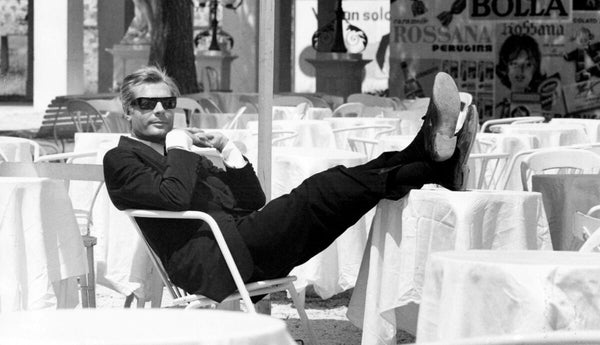Marcello Mastroianni, born on September 28, 1924, is widely regarded as one of the most iconic actors in the history of Italian and global cinema. With a career spanning over five decades, he became synonymous with Italian cinema’s golden era. Bringing a unique blend of charm, sensitivity, and introspection to his roles. As we celebrate 100 years since his birth, it’s time to reflect on the actor’s immense impact on film and the legacy he leaves behind.
A Career of Versatility and Depth
Mastroianni first rose to prominence during the 1950s, becoming a defining face of post-war Italian cinema. His early roles showcased his remarkable versatility, from romantic leads to characters grappling with deep moral or existential dilemmas. Unlike many actors who often get typecast, Mastroianni demonstrated an ability to shift seamlessly between drama, comedy, and even political narratives. Always with a magnetic screen presence that made him one of the most sought-after actors of his generation.
It was through his collaboration with directors like Federico Fellini that Mastroianni solidified his position as a cinematic giant. His portrayal of Guido Anselmi in 8½ (1963) remains one of his most celebrated performances. Embodying a filmmaker amid a creative and personal crisis. This role crystallized Mastroianni as a symbol of Italian intellectualism and modernity—traits that often defined the characters he played.
A Global Star
Mastroianni’s talent transcended borders, with international directors frequently seeking him for leading roles. He worked with Michelangelo Antonioni in La Notte (1961), a film that explored the alienation of modern life. Showcasing Mastroianni’s ability to convey deep emotional isolation with subtlety. He also charmed audiences in comedies like Divorce Italian Style (1961), where he showcased his comedic prowess, balancing satire and character depth.
His collaborations with the great Italian actresses of his time—Sophia Loren, Monica Vitti, and Claudia Cardinale—produced some of the most memorable pairings in film history. The chemistry between Mastroianni and Loren, in particular, was legendary. Their films, such as Yesterday, Today and Tomorrow (1963) and A Special Day (1977), are timeless explorations of love, societal change, and personal growth.
A Legacy of Iconic Roles
Mastroianni’s filmography is filled with unforgettable performances. While his partnership with Fellini is perhaps the most famous, his work with directors like Luchino Visconti, Ettore Scola, and Mario Monicelli also shaped his career. Films such as Peccato sia una canaglia (1954), I soliti ignoti vent anni dopo (1985), Parigi è sempre Parigi (1951), and Adua e le compagne (1960) are just a few examples of his extraordinary range and capacity to bring diverse stories to life.
One of Mastroianni’s enduring qualities was his ability to inhabit characters that reflected both the romantic and the melancholic sides of life. Whether playing an impoverished lover in Cronache di poveri amanti (1954) or a disillusioned intellectual in La donna della domenica (1975), Mastroianni brought a relatable depth to his characters, always grounding them in reality while maintaining a certain cinematic elegance.
The Eternal Lover and Existential Man
What made Mastroianni a unique force in cinema was his embodiment of the “Latin lover” archetype, a trope he often subverted. His charm was undeniable, but it was his ability to infuse his characters with vulnerability and self-doubt that distinguished him. His characters were often flawed, introspective men grappling with their desires, identity, and place in a rapidly changing world. This duality made Mastroianni’s performances both timeless and ahead of their time.
In films like La fortuna di essere donna (1956) and Domenica d’agosto (1950), Mastroianni explored different facets of masculinity and personal relationships, presenting a multifaceted portrait of Italian life and love. These films, along with many others, demonstrated his skill in making complex characters deeply human and relatable.
Celebrating 100 Years of Cinema’s Leading Man
As we mark the centennial of Marcello Mastroianni’s birth, his legacy continues to resonate. His films remain beloved, not only for their artistic merit but also for the way they reflect the human experience with humor, grace, and emotional depth. Mastroianni’s contribution to cinema is immeasurable—his performances speak to the universal qualities of love, loss, desire, and introspection, transcending both time and cultural boundaries.
From La notte to Era l’anno di grazia 1870 (1971), Mastroianni’s extensive filmography is a treasure trove of cinema’s greatest moments. He was more than just an actor; he was an interpreter of the human soul, capable of finding beauty, sadness, and complexity in even the simplest stories.
Mastroianni’s charm, sophistication, and immense talent ensure that he will be remembered as one of the finest actors in cinema history, a true Italian icon whose 100-year legacy continues to inspire filmmakers and audiences alike.
Watch the movie on Movieitaly+
Read more articles here!






